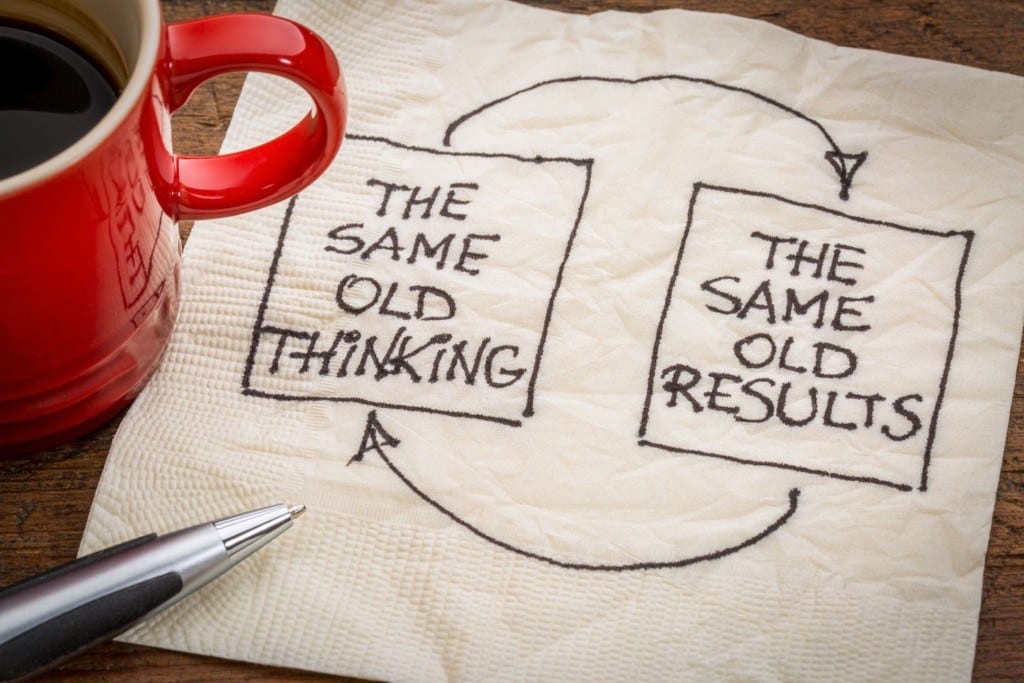Many people in recovery from addiction wonder if they’ll ever be able to let their guard down on staying sober. It is an important question, given the profound impacts of dependency on the brain, and the potential for cross-addiction to develop.
Part of our success in life lies in our ability to cope with the challenges that arise. For those who are in recovery from addiction, the cultivation of new coping mechanisms will become a frequent discussion around how to maintain sobriety.
However, addiction’s unique impacts on neural pathways can result in a phenomenon in recovery known as “cross-addiction,” where the use of a substance or even an activity to cope with stress triggers the same feeling of rush and reward as the previous addiction. This can result in similar negative impacts to one’s life and relationships, and undermine a sustained recovery.
Being aware of cross-addictions, how they form, and what they look like, can help you stay on track, and curb problematic behaviour before it becomes a new addiction.
What is a Cross-Addiction?
A cross-addiction is a new type of addiction that fills the void left by abstinence from another dependency. Cross-addictions can involve another substance, like marijuana instead of alcohol, or can be with things like junk food, cigarettes, exercise, or shopping. These types of addictions can happen to anyone – from those newly in recovery, to those ten years sober. If you find yourself leaning heavily on a particular substance or activity to boost your mood and manage stress, this could indicate a cross-addiction.
You might find yourself asking, “But what if I just like having a donut sometimes?” Or, “So is my newfound jogging hobby a cross-addiction?” If you are indulging in sweets as an occasional treat, or if your jogging helps relieve stress but isn’t an all-consuming part of your day, then you probably aren’t struggling with a cross-addiction. If you are not sure, here are some questions to ask yourself to help get a better understanding of how “feel-goods” in your life relate to old pathways for addiction:
- How often do I engage in this behaviour? How does it make me feel when I do it? How do I feel afterwards?
- How many times a day, and to what intensity, do I find myself engaging in this behaviour?
- If I am unable to engage in this behaviour, or am prevented from doing it, how do I feel? How do I react?
If you answer these questions and notice that your responses are similar to how you felt during your addiction, you may be developing a cross-addiction.
What are Common Types of Cross-Addiction?
Cross-addictions can occur with all types of activities, including those typically thought of as healthy. The important thing to remember is that if the activity is triggering an area of your brain primed towards addiction, this can undermine your recovery and reinforce problematic habits and behaviours. Common cross-addictions include things like:
Spending money
Many of us feel a little thrill when we buy something that we really like, thanks to a release of mood-boosting endorphins triggered by spending. This response is heightened by the social conditioning in many consumer-based societies that teaches us that new things make us happier, and too much is never enough. However, if you find yourself routinely spending beyond your means, or buying lots of things that you don’t need and forgetting about them soon after you buy them, your shopping may have crossed the line into a cross-addiction.
Sex
Good sex is a natural way to relieve stress and let loose the powerful neurotransmitter dopamine. Natural dopamine levels, which play a significant role in our feelings of satisfaction and pleasure, are often lowered during early recovery due to the lack of artificial stimulation by addiction. While sex is a great way to give those levels a boost, if it is compulsive, or involves risky behaviour, this can indicate that it is actually becoming addictive.
Exercise
You are probably reading this and thinking, “Can being addicted to exercise really be a bad thing?” Regular exercise is a great habit to have, putting us on a natural endorphin high and strengthening our minds and bodies. But if you are getting to the point where you are so laser-focused on exercise that you are neglecting the psychological work that has to go into recovery, this is where the danger of cross-addiction comes in. Using exercise as a way to feel good without actually dealing with the things that are making you feel bad can lead to continued avoidance of the root causes of your addiction, and delay your overall recovery.
Surfing the Net
The internet and social media are built to draw you in and keep you clicking, so it’s no wonder that this is a common cross addiction. Whether it is a newsfeed, social media accounts, dating apps, online marketplaces or just the casual thrill of falling down a rabbit hole of information, the internet offers endless opportunities for distraction from our daily lives. It can also be a source of shame or guilt, particularly if you are constantly comparing yourself to others, and this can trigger old feelings underlying past addiction. Setting some good boundaries as to how and when you use the internet can help prevent cross-addiction.
Food
Whether you tend to “eat your feelings” by binging on junk food, or try to reassert control through overly strict diet plans, how you feed yourself can also become a cross-addiction. Be aware of your response to not just what you are eating, but HOW you are eating. If you realise that you are often craving and eating sugar (which studies have shown to be highly addictive), or that you’re imposing increasingly severe restrictions on what you’re allowing yourself to eat, these may be signs of a cross-addiction.
Nicotine
Cigarettes are known as easily accessible tools to relieve stress and help channel nervous energy. Unfortunately, they are also highly addictive and dangerous to your long-term health. Relied on by many in recovery, it’s common for people to be overcoming their alcohol or drug addiction while falling deeper into a nicotine addiction.
What to Do if You Have a Cross-Addiction
If you think you may have developed a cross-addiction, don’t despair. The tools that you have acquired in your recovery to fight addiction will be just as useful once you realise you’ve got a problem. For many people, learning about how the brain tries to find a way back to old habits is useful in identifying potential future temptations, and figuring out how best to move forward.
Remember that it’s important to listen to family and friends if they express concern about a potentially problematic habit as well. Dismissing or minimising other people’s concerns is a hallmark of addiction, and something to be aware of as you navigate recovery.
Some studies suggest that resilience to addiction builds during recovery, not only for the previous dependency, but for potential new ones. Professional support during recovery is so important, as it helps you continue to identify new, healthy coping mechanisms, while also diligently addressing the psychological factors and habits that help build and fuel addiction.
Shedding Bad Habits, Building Healthy Ones at The Dawn

At The Dawn Wellness Centre and Rehab in Thailand, we understand the nuances of addiction and recovery, and how to help people through the challenges of these processes. Our signature addiction programme focuses both on identifying and treating the root causes of addiction, and building a range of healthy coping skills to ensure a full, lasting recovery. We work closely with each one of our clients to build a highly personalised treatment plan based on your specific needs, and that can be adjusted as your recovery evolves.
Reach out to The Dawn today and learn more about how we can help fine-tune your recovery and maximise your physical and mental health.
Related Posts
 Why Cognitive Behavioural Therapy is an Effective Tool for Addiction Treatment
If you or a loved one are struggling with alcohol or drug addiction and facing a daily battle to stop, it’s time to consider cognitive behavioural therapy for addiction treatment....
Why Cognitive Behavioural Therapy is an Effective Tool for Addiction Treatment
If you or a loved one are struggling with alcohol or drug addiction and facing a daily battle to stop, it’s time to consider cognitive behavioural therapy for addiction treatment....
 Nature Vs. Nurture: Which Makes Us Addicted? Both, Actually
Is drug and alcohol addiction inherited? Or is it caused by environmental factors? Most people are aware that addiction seems to run in the family, but you have probably also...
Nature Vs. Nurture: Which Makes Us Addicted? Both, Actually
Is drug and alcohol addiction inherited? Or is it caused by environmental factors? Most people are aware that addiction seems to run in the family, but you have probably also...
 Filling in the Gaps: Understanding the Impacts of Addiction on Women
With rates of addiction rising among women, it’s becoming clear that a one-size-fits-all approach to treatment does not adequately address the unique impacts of this disease on different genders. Modern...
Filling in the Gaps: Understanding the Impacts of Addiction on Women
With rates of addiction rising among women, it’s becoming clear that a one-size-fits-all approach to treatment does not adequately address the unique impacts of this disease on different genders. Modern...
 13 Characteristics of Addiction – How Do You Know When Someone is an Addict?
Addictive behaviour occurs when a substance, activity, or behaviour becomes the main focus of an individual’s life, resulting in physical, mental, or social harm to themselves or others. It is...
13 Characteristics of Addiction – How Do You Know When Someone is an Addict?
Addictive behaviour occurs when a substance, activity, or behaviour becomes the main focus of an individual’s life, resulting in physical, mental, or social harm to themselves or others. It is...





